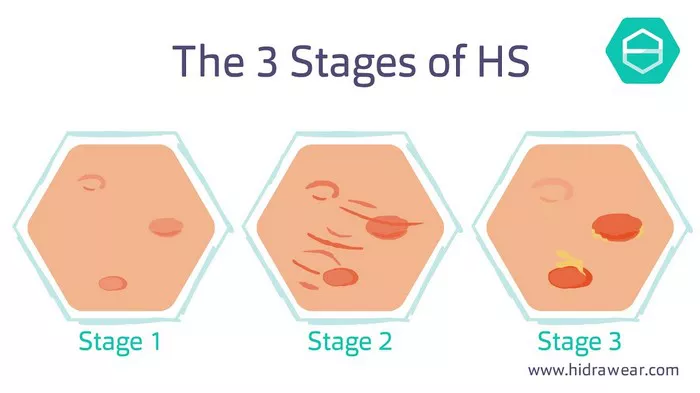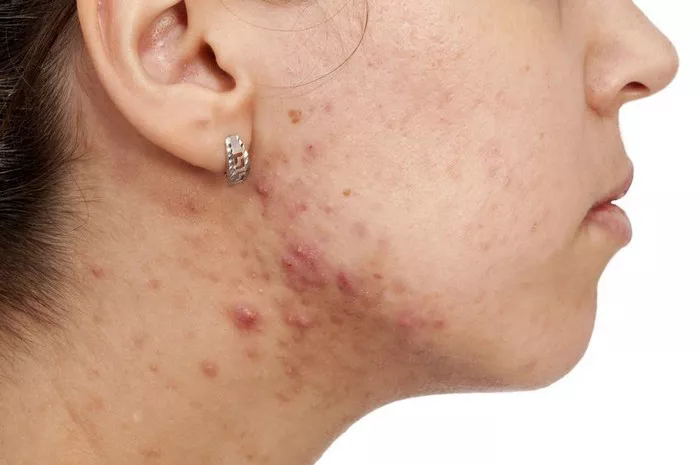Hidradenitis suppurativa (HS) is a chronic skin condition characterized by painful, swollen lumps that develop under the skin, typically in areas where skin rubs together, such as the armpits, groin, buttocks, and under the breasts. These lumps can rupture and cause abscesses, leading to significant discomfort, scarring, and psychological distress. Finding the best treatment for HS is critical for improving patients’ quality of life. This article will explore the various treatment options available for managing hidradenitis suppurativa, including lifestyle changes, medications, and surgical interventions.
Understanding Hidradenitis Suppurativa
Causes and Risk Factors
The exact cause of HS is not fully understood, but it is believed to involve a combination of genetic, hormonal, and environmental factors. Risk factors include:
- Genetics: Family history of HS increases the risk.
- Hormonal changes: The condition often starts after puberty and may worsen around menstrual periods, pregnancy, or menopause.
- Obesity: Excess weight increases friction and sweating in areas prone to HS.
- Smoking: Tobacco use is strongly associated with HS.
Symptoms
The primary symptoms of HS include:
- Painful lumps or nodules
- Abscesses that can rupture and leak pus
- Tunnels or sinus tracts under the skin
- Scarring and skin thickening
Lifestyle and Home Remedies
Weight Management
Maintaining a healthy weight can reduce the severity of HS by decreasing skin friction and inflammation. Weight loss through diet and exercise is beneficial for overweight or obese individuals.
Smoking Cessation
Quitting smoking is one of the most effective ways to manage HS. Smoking cessation reduces inflammation and improves overall skin health.
Skin Care
Proper skin care is crucial for managing HS:
- Hygiene: Regular cleansing with gentle, non-irritating soaps can prevent infections.
- Clothing: Wearing loose, breathable clothing reduces friction and sweating.
- Warm Compresses: Applying warm compresses to affected areas can alleviate pain and promote drainage of abscesses.
Diet
Some studies suggest that dietary changes may help manage HS symptoms. A diet low in dairy and high-glycemic-index foods may reduce flare-ups. Additionally, an anti-inflammatory diet rich in fruits, vegetables, and omega-3 fatty acids can support overall health.
Medical Treatments
Antibiotics
Antibiotics are often the first line of treatment for HS. They can reduce inflammation, treat secondary infections, and prevent future flare-ups. Commonly used antibiotics include:
- Topical antibiotics: Clindamycin and erythromycin can be applied directly to the skin.
- Oral antibiotics: Tetracyclines (such as doxycycline and minocycline) are commonly prescribed for moderate to severe HS.
Anti-Inflammatory Medications
Anti-inflammatory medications can help manage pain and swelling. These include:
- Nonsteroidal anti-inflammatory drugs (NSAIDs): Ibuprofen and naproxen are commonly used.
- Corticosteroids: Oral or injected corticosteroids can reduce severe inflammation.
Hormonal Therapy
Since hormonal changes can influence HS, hormonal therapy may be effective, especially in women. Options include:
- Oral contraceptives: Birth control pills can help regulate hormonal fluctuations.
- Anti-androgens: Medications like spironolactone reduce androgen levels, which may improve symptoms.
Biologic Therapies
Biologic therapies target specific components of the immune system that contribute to inflammation. They are typically used for moderate to severe HS that does not respond to other treatments. The most commonly used biologic for HS is:
- Adalimumab (Humira): This tumor necrosis factor (TNF) inhibitor has been approved by the FDA for the treatment of moderate to severe HS.
Immunosuppressive Drugs
Immunosuppressive drugs can help control inflammation by suppressing the immune system. These include:
- Cyclosporine: Often used for severe cases, cyclosporine can reduce symptoms but requires careful monitoring due to potential side effects.
- Methotrexate: This medication can be effective but is also associated with significant side effects.
Retinoids
Oral retinoids, such as acitretin, can help reduce the formation of new lesions. They are particularly useful for patients with moderate to severe HS.
Surgical Treatments
Incision and Drainage
For acute abscesses, incision and drainage can provide immediate relief by removing pus and reducing pressure. However, this is not a long-term solution and may need to be repeated.
SEE ALSO: Is Hidradenitis Suppurativa Autoimmune or Autoinflammatory?
Laser Therapy
Laser therapy can be effective for reducing inflammation, removing hair follicles, and treating sinus tracts. Types of laser treatments include:
- Carbon dioxide (CO2) laser: This laser is used to remove affected tissue and hair follicles.
Nd
- laser: This laser can help reduce inflammation and destroy sinus tracts.
Wide Excision
Wide excision involves surgically removing the affected skin and underlying tissue. This procedure is often used for severe or recurrent HS. The wound is either closed with stitches or left open to heal naturally. Wide excision can significantly reduce symptoms but may result in scarring.
Skin Grafting
In cases where large areas of skin are removed, skin grafting may be necessary to promote healing. This involves transplanting healthy skin from another part of the body to cover the wound.
Deroofing
Deroofing is a less invasive surgical option that involves removing the top layer of skin over tunnels and abscesses. This allows the area to heal from the inside out, reducing the risk of recurrence.
Emerging Treatments
Platelet-Rich Plasma (PRP) Therapy
PRP therapy involves injecting a concentrated solution of the patient’s own platelets into the affected area. This can promote healing and reduce inflammation. Early studies suggest PRP may be beneficial for HS, but more research is needed.
Stem Cell Therapy
Stem cell therapy is an experimental treatment that aims to regenerate damaged tissue and reduce inflammation. While still in the early stages of research, it holds promise for future HS treatment.
Antibiotic Resistance
One challenge in treating HS is the development of antibiotic resistance. Long-term use of antibiotics can lead to resistant bacteria, making treatment less effective. It is important to use antibiotics judiciously and in combination with other therapies.
Multidisciplinary Approach
Given the complex nature of HS, a multidisciplinary approach is often necessary. This may involve collaboration between dermatologists, surgeons, endocrinologists, and other specialists. Psychological support is also crucial, as HS can significantly impact mental health.
Conclusion
Hidradenitis suppurativa is a challenging condition that requires a comprehensive treatment plan tailored to the individual. While there is no one-size-fits-all solution, a combination of lifestyle changes, medical treatments, and surgical interventions can significantly improve symptoms and quality of life. Ongoing research continues to explore new and innovative treatments, offering hope for more effective management of HS in the future. Patients should work closely with their healthcare providers to develop a personalized treatment strategy that addresses their specific needs and circumstances.
Related Topics:

























